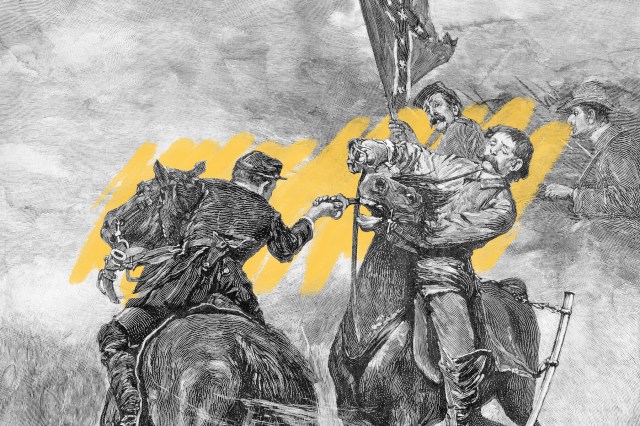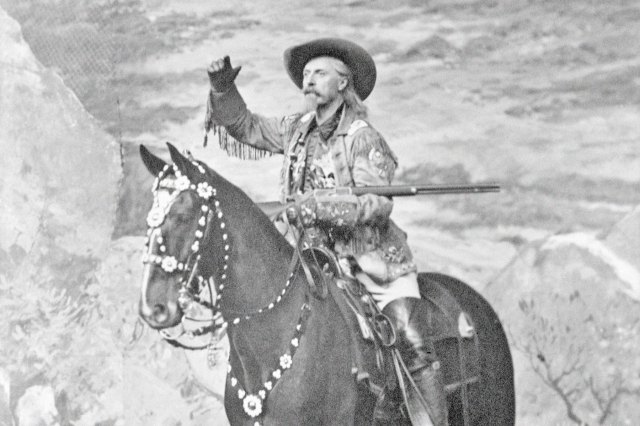Why one Civil War battle had a time-out
Sunday, June 30, 2024
In one of the more peculiar moments of the Civil War, an entire battle came to a screeching halt so that everybody — Union and Confederate soldiers alike — could watch a fistfight. |
| |
| |
|
 |
|
| I n one of the more peculiar moments of the Civil War, an entire battle came to a screeching halt so that everybody — Union and Confederate soldiers alike — could watch a fistfight. A Confederate soldier named John H. Worsham recounted the incident, which took place on May 5, 1864, on Saunders Field in Virginia during the Battle of the Wilderness, in his 1912 memoir One of Jackson's Foot Cavalry. Worsham wrote that a small ditch ran down the center of the battlefield that was first used by Union soldiers to shelter them from enemy fire. When the soldiers vacated the ditch, one of them stayed behind. Soon after, a single Confederate soldier jumped into the ditch to find shelter — and it wasn't long before the two soldiers noticed each other. |
|
|
| After the men exchanged some words, they decided to have what Worshom called a "regular fist and skull fight," in which the winner would take the loser prisoner. The soldiers took their duel to a road midway through the battle lines, and both sides stopped fighting and rushed closer to get a better view. Ultimately, at least according to Worsham, the Union soldier lost and let himself be taken prisoner — but bear in mind that the tale comes from a book of Confederate, not Union, war stories. |
|
 |  |
|
|
 |
|
| |
|
| Duration (in days) of the Battle of the Wilderness | | | 2 |
| | | Percentage of the U.S. population that died in the Civil War | | | 2% |
| | | Percentage of the U.S. population that died in the Civil War | | | 2% |
|
|
|
| Black soldiers enlisted in the Union Army | | | 180,000 |
| | | Words in the Gettysburg Address | | | 272 |
| | | Words in the Gettysburg Address | | | 272 |
|
|
|
 |
|
 | | Did you know? |
|
|
Harriet Tubman led a Union raid that freed 750 enslaved people. |
|
| Harriet Tubman is perhaps the most famous "conductor" of the Underground Railroad, a network of people who helped enslaved people escape to freedom in the 1850s. But during the Civil War, she worked as a nurse and a spy. On June 1, 1863, after gathering intelligence from enslaved people about Confederate torpedoes along the Combahee River, she led 150 Black soldiers in a military operation against the plantations of wealthy secessionists. Tubman guided three gunboats down the river and destroyed several prominent plantations. Along the way, her boats picked up around 750 enslaved people and brought them to freedom. She was the first woman to lead a major military operation in the United States. |
|


posted by June Lesley at 4:01 AM











![]()
![]()







0 Comments:
Post a Comment
<< Home